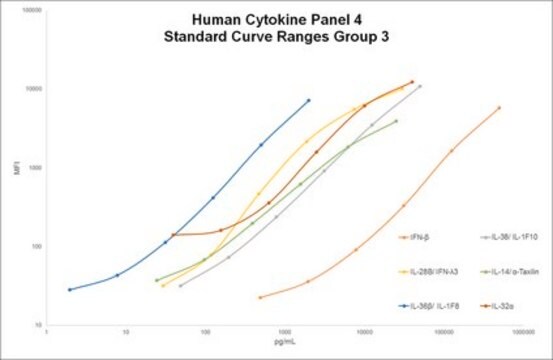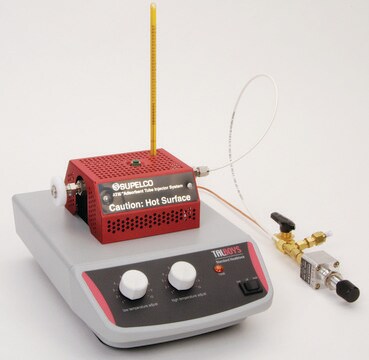HCKP2-11K
MILLIPLEX® Human Immuno-Oncology Checkpoint Protein Panel 2 - Immuno-Oncology Multiplex Assay
About This Item
Recommended Products
species reactivity
human
manufacturer/tradename
Milliplex®
technique(s)
multiplexing: suitable
detection method
fluorometric (Luminex® xMAP®)
storage temp.
2-8°C
General description
Specificity
Application
Features and Benefits
Packaging
Storage and Stability
Legal Information
Disclaimer
Signal Word
Danger
Hazard Statements
Precautionary Statements
Hazard Classifications
Acute Tox. 4 Dermal - Acute Tox. 4 Inhalation - Acute Tox. 4 Oral - Aquatic Chronic 2 - Eye Dam. 1 - Skin Sens. 1 - STOT RE 2
Target Organs
Respiratory Tract
Storage Class Code
10 - Combustible liquids
Regulatory Listings
Regulatory Listings are mainly provided for chemical products. Only limited information can be provided here for non-chemical products. No entry means none of the components are listed. It is the user’s obligation to ensure the safe and legal use of the product.
PDSCL
Please refer to KIT Component information
PRTR
Please refer to KIT Component information
FSL
Please refer to KIT Component information
ISHL Indicated Name
Please refer to KIT Component information
ISHL Notified Names
Please refer to KIT Component information
Cartagena Act
Please refer to KIT Component information
JAN Code
キットコンポーネントの情報を参照してください
Certificates of Analysis (COA)
Search for Certificates of Analysis (COA) by entering the products Lot/Batch Number. Lot and Batch Numbers can be found on a product’s label following the words ‘Lot’ or ‘Batch’.
Already Own This Product?
Find documentation for the products that you have recently purchased in the Document Library.
Related Content
Research evaluating immune checkpoints may help identify those likely to benefit from PD-1/PD-L1 immunotherapy and reveal new immunotherapy targets for future investigation. See how the MILLIPLEX® Human Immuno-Oncology Checkpoint Protein Panel 2 was used to multiplex immune checkpoint molecules for NSCLC research.
Detection of cancer biomarkers through multiplex cancer assays can accelerate studies of normal homeostasis and tumorigenic processes. See how MILLIPLEX® multiplex cancer assays are advancing various cancer research areas including lung cancer, breast cancer, and immuno-oncology research.
Discover the benefits of MILLIPLEX® multiplex assays, based on Luminex® xMAP® multiplex assay technology, that provide consistent, high-quality results and see how these multiplex biomarker Luminex® assays are being used to advance research.
Our team of scientists has experience in all areas of research including Life Science, Material Science, Chemical Synthesis, Chromatography, Analytical and many others.
Contact Technical Service










